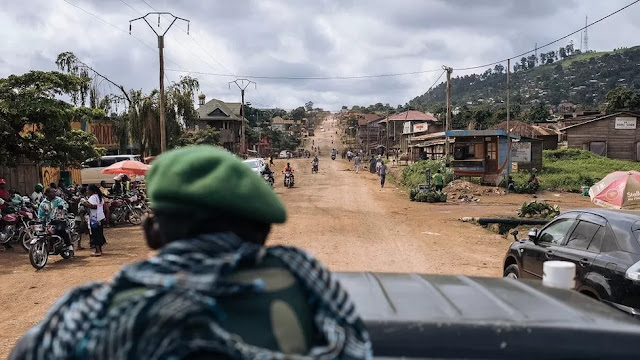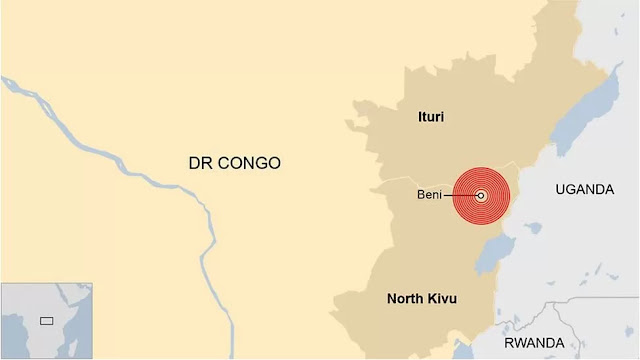The DR Congo government blames the Kasindi church attack on rebels.
Officials claim ten people were slain while attending church on Sunday.
At least 39 people were injured, and the Congolese military called the attack a "terrorist act" Allied Democratic Forces (ADF).
The ADF is a well-known active rebel group in eastern Congo.
The Congolese government "strongly condemned" the bomb attack, which it claims was "visibly perpetrated by ADF terrorists," according to a statement.
It offered its "deepest sympathies" to the dead families who were victims of "this horrible terrorist attack".
The UN mission in the Democratic Republic of the Congo denounced "the vicious and reprehensible attack" in Kalindi.
"It's a who's who of terrorists," claimed a spokesman for the Congolese government.
According to Mr. Mualushayi, an "improvised explosive device" was utilized in the attack.
Kalindi is around 8 kilometers (5 miles) from Beni, where the ADF is active.
In December, the country's senior UN envoy informed the Security Council that security is "one of the most critical concerns" facing DR Congo.
How Islamic State has grown throughout Central Africa
The ADF, an Islamist militant organization, was founded in the 1990s and is largely concerned with internal Ugandan grievances.
However, since re-emerging in DR Congo, the ADF has increasingly claimed attacks in the name of the so-called Islamic State group, with a series of attacks on Congolese civilians and a broader global jihadist character.




No comments